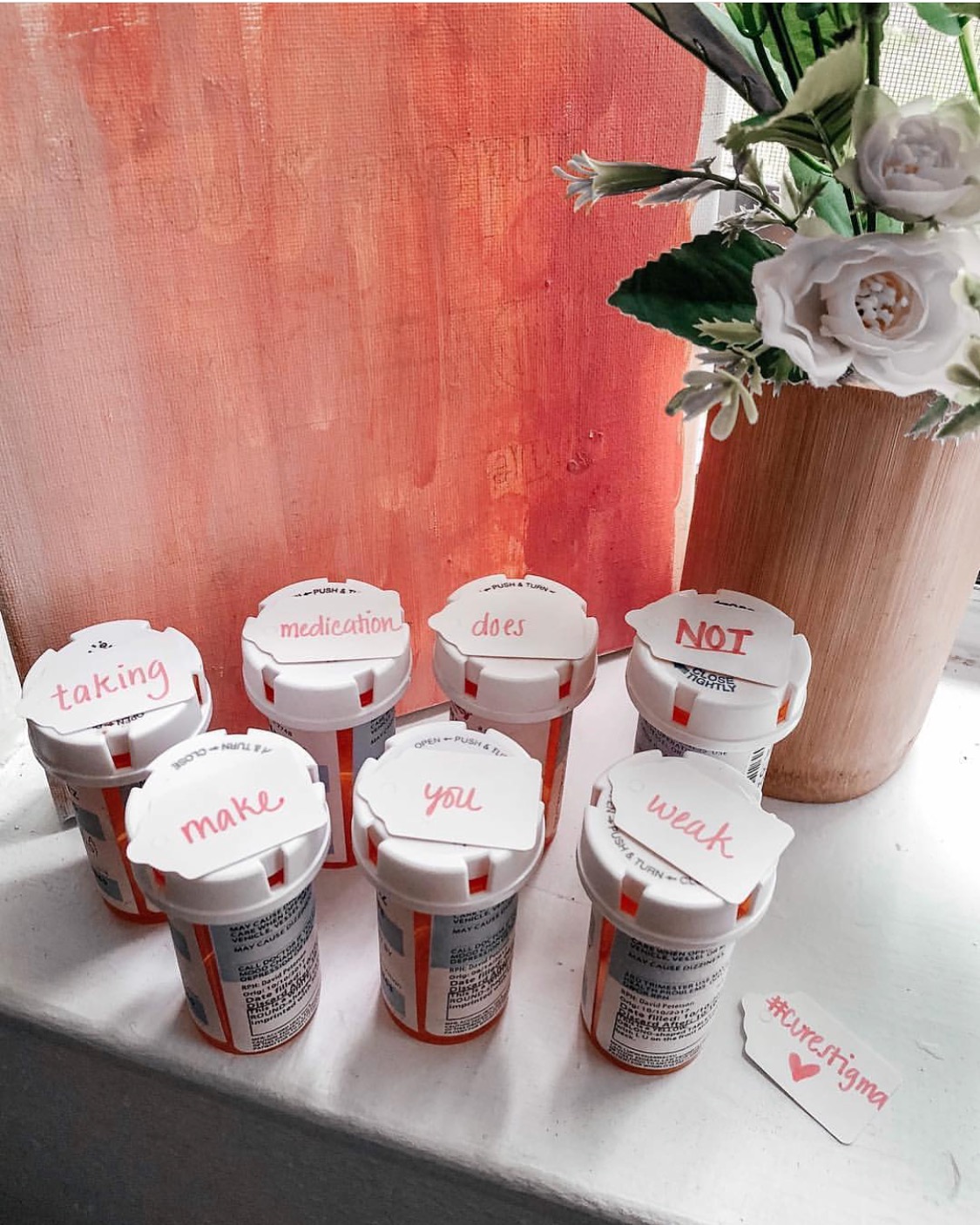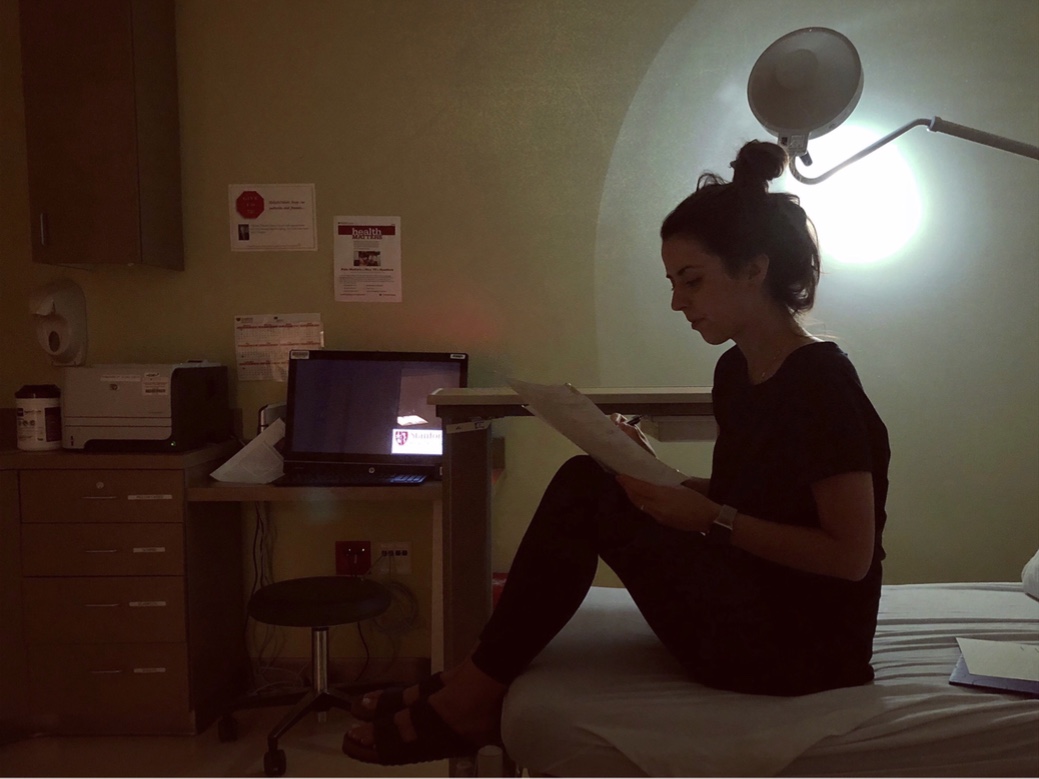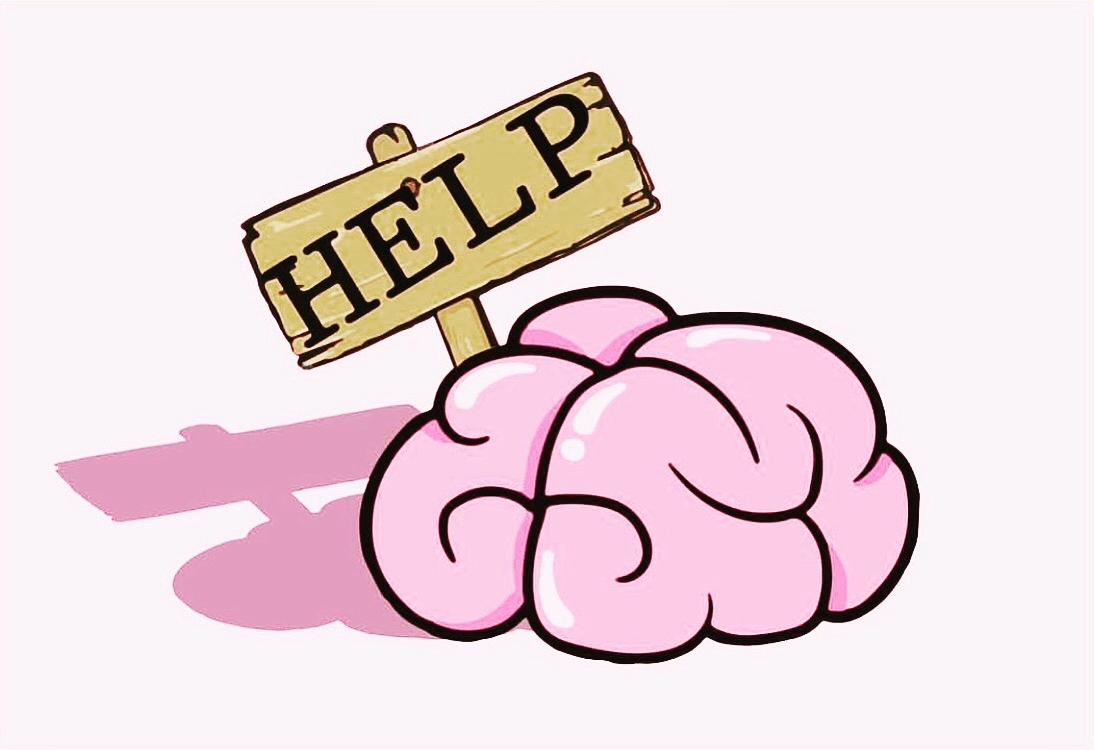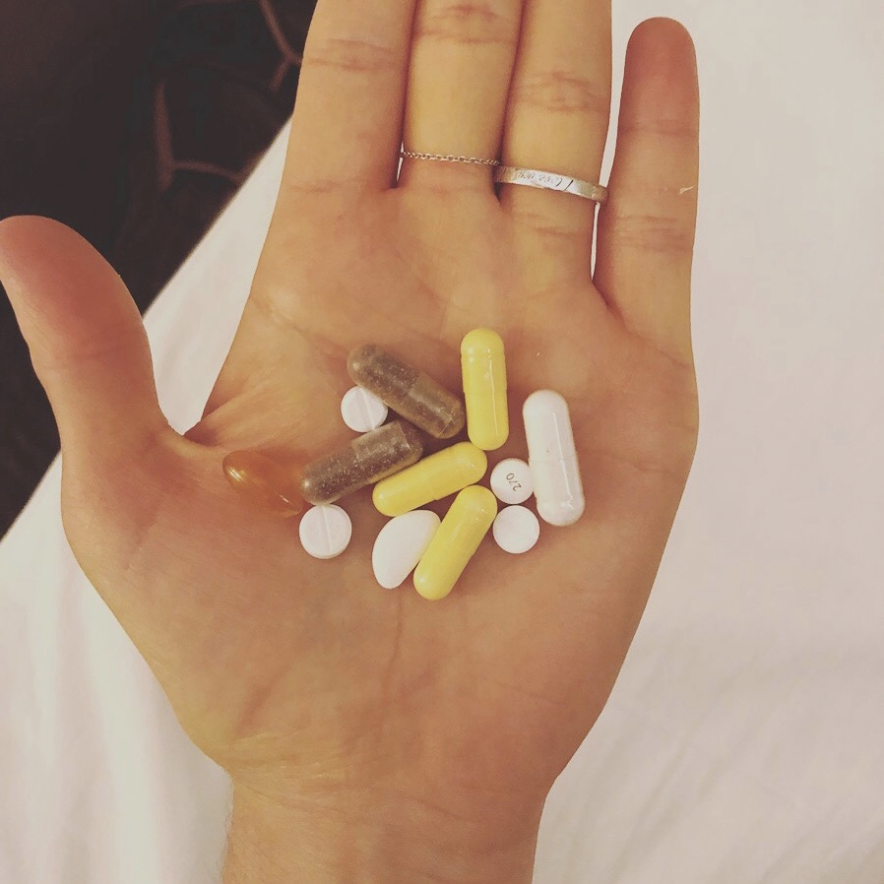Coming Off of a Daily Preventative Migraine Medication
This week is the first time in over four years I have been completely off of a daily migraine preventative. I so clearly remember back when my primary care doctor (before the days of neurologists and headache specialists) suggested I consider a daily migraine preventative medication, and my knee-jerk response was uncomfortable shock and a big “no. way. not. ever.“
Her proposal seemed so extreme to me, and I couldn’t imagine ever putting a medication into my body every single day for just…migraines? The idea filled me with an unease I couldn’t quite articulate, a deep discomfort and confusion about daily medication even being suggested as a plausible “solution” for my increasingly difficult to manage migraines. I remember talking to my boyfriend that night, telling him I would never consider a daily migraine medication, unable to envision getting to a point where that would be a part of my life.

Taking medication does not make you weak via @gigglesandwhine
As I’ve mentioned before, I’ve always been nervous about taking medication and used to stress heavily over needing advil for period cramps. Each new medication I’ve tried, has been like a slow chipping away at a massive rock of concern about side effects and how these drugs will affect my system in the long run. It’s something I don’t talk about much, however, throughout this journey, I’ve struggled immensely to make peace with putting so much medication into my body.
Once my migraines shifted fully from episodic to chronic, and I was suffering with uncontrolled daily pain, it became clear to me, both from the experts I was seeing and my own desperation, that I had reached the point where a preventative medication was an inevitable next step in my treatment plan. I was taking abortive medications daily anyway, and fear about my increasingly debilitating and severe attacks outweighed my reticence about taking a daily preventative drug.
The first daily preventative I tried for migraine was topomax. My Mom and Aunt had both been on this medication, which made me feel 10x more comfortable with taking it (or at least dispelled some of the irrational fears I had about side effects). They had both had success with the medication, and despite my nerves, I felt hopeful that if I was patient and followed the doctor’s directions, I would surely start to see measurable improvement also.
I stayed on topomax for 6+ months, increasing to the maximum dose, and unfortunately didn’t see any positive change. Oddly enough, this made me feel guilty. Like I had failed the medication, and like something was wrong with me for the medication to have worked for two people, especially so close to me, and not have touched my pain at all.
Over the course of the next three and a half years, this cycle repeated itself over and over again. I followed my neurologist’s recommendations to try different daily medications, swallowed my fear and anxiety around doing so, put all of my hope and positive energy into seeing some change, and waited.

Medication log + migraine dairy + appointment agenda = #propatient
Frustratingly, each time, after months of diligent migraine tracking and no conclusive pattern change, I would titrate down on the current preventative and the process would repeat itself with a new one.
What also became part of the pattern was feeling guilty and confused. Why wasn’t my body responding to anything? As discouraging as it was for me, I could also tell it was frustrating my neurologist. I felt like I was letting her down each time I had to say, “no, I haven’t noticed any change with this one either” or “actually, things have been worse since starting it“.
Eventually, my neurologist told me that I might just be “one of those patients” who needed to be on two preventative medications at once. As I sat on the exam table listening to her nonchalantly bring this up, my chest tightened and my eyes filled with tears. It felt like a literal punch in the stomach, and I did my best to keep my quivering lip and racing heart from turning into an emotional breakdown. I tried so hard each time I saw her to put on a brave face, to follow directions regarding new medications with a positive and hopeful outlook. I never expressed just how emotionally challenging it was for me or admitted how much strength it required. This suggestion of two preventatives at once felt overwhelming, and like it was asking for strength and courage I couldn’t muster up. It felt so unfair and I was absolutely terrified about what a receptacle for pills my body felt like it was becoming.
However, as I’d done many times before, I worked through my anxiety and followed instructions like the honor roll student turned honor roll patient I was trying to be. I filled prescription after prescription, packed my meds box each week, and watched the number of pills I was swallowing every morning and evening increase, over and over again. I had to constantly remind myself that better management was my end goal; and that if this was a possible avenue to accomplish that goal, I had to give it a try.
The emotional toll of testing out each new preventative (not to mention the physical side effects) is difficult to fully express. For each of the ten daily preventatives I’ve tried, a minimum of three months was required in order to have “given it a good shot”. This timeline was further complicated by being on multiple preventative medications at once. Often, because my migraine cycles were so aggressive and long lasting, I would stay on a medication for 6+ months to be extra sure that it wasn’t going to start helping, each time hoping that with additional time I might see some change.

As I became better educated about migraine disease and a more active participant in my treatment, the efficacy of daily preventative medication became even clearer to me, and my secret guilt about why they weren’t working for me grew. I felt like I had to be doing something wrong for them to not be working, but I had no idea what. I had tried all of the traditional preventative meds (topomax, trokendi, amitriptyline, noritriptyline, propanolol, gabapentin, etc…) and as we started to try off-label, experimental medications these questions became louder in my head.
This guilt was part of what propelled me to keep trying new medications, even ones not officially indicated for migraine treatment. As big as my anxiety was, my guilt was bigger. I wanted to be a good patient, and I just kept hoping that something would eventually help.
I recently moved to a new city and switched neurologists, and was extremely encouraged by his fresh approach to my treatment. Currently, I am still doing botox injections every three months and am on my second month of the new aimovig injections. I have been on a daily preventative for so long, that when he asked if the one I am taking now has been working (and I said no), he suggested I titrate down immediately and see how things go with just botox and aimovig.
Although a few years ago these instructions would have filled me with relief, I felt somewhat shocked to hear the words come out of his mouth. Was I still a good patient if I wasn’t on a daily preventative? Was I still doing everything I could be doing to get better? My reaction made me realize how much weight and attachment I had placed on being on a daily preventative. I equated doing my best to get better with being on a daily preventative medication, regardless of whether it was effective.

Reflecting on my journey with these daily preventative medications made me realize what a true emotional roller coaster it has been. As symptom management and treatment took center stage, I largely avoided dealing with the feelings of guilt and stress about medication that have been present throughout my experience.
Coming off a daily preventative has felt like a huge exhale, a release of all the feelings I’ve been bottling up for the past four years. I still don’t know what my treatment will ultimately look like, and there is a good chance that with new research and treatment options coming down the pipeline I might be on one again. But for right now I am feeling out what it is like to not take one, and allowing myself to be okay with that.
Every person’s migraines present differently, and everyone’s treatment is individual. What works for one person does not work for the next, that is the nature of this tricky illness.
As trying as the journey of testing these preventative medications has been, I’m still glad that I did it. The efficacy of these treatments is supported so strongly by the research, that I needed to know if any of them were part of the answer for me. In no way do I judge or advise against a daily preventative, and despite my experience, I still encourage anyone suffering significantly with frequent migraines to talk to their doctors and consider it.
We must always stay open and hopeful, but also accept that our migraine story will be unique, and be our own. My story is not over yet, and even though a daily preventative has not been effective in managing my pain, it has taught me many important lessons about living with this condition. So, even if something that has worked for everyone else you know doesn’t help you, that is okay, and most importantly…not your fault. Stay open and hopeful friends, nothing but love to you all!
August 28, 2018
Meet Natalie
I share each step along my road to wellness and healing and hope that in doing so I can inspire you along your own path. Thank you so much for being here.
Hello, I’ve been following you on Insta and just now had the time to read your blog posting, as I was very curious about your Aimovig journey. I have a script for Aimovig, but my insurance denied paying for it, so I’m trying to enroll in the 2 free doses program. I’ve been going to a neurologist at Mayo Clinic for a few years now and he wouldn’t prescribe Aimovig to me because he said that Novartis doesn’t have any long term effects data, which he didn’t like. I had a long, weepy appt with him about it. He wanted to try the new eNeura trans-magnetic device, but I wasted 2 months trying to get my insurance to cover that too, and lost that battle. After 32 years of chronic migraines, trying every drug out there (except Botox), I’m just fed up. I wanted the Aimovig, so I had my GP prescribe it to me. Some of these neurologists just don’t understand what we go through. The trial and error and the time taken to get the meds, the time they take to work, the money spent, etc. It’s exhausting. I wanted to scream at him and say “just give me the drug!”. Lol. I am curious, have you found Botox to be helpful, or have you only just started that too? I’m leary of it because I have such sensitivities to drugs and once that stuff is in your system, it’s not like you can stop taking it, you know? Oh, and btw, my migraines have caused me to have a Central Sensitization Syndrome as well, so that’s been completely disabling the last 5 yrs. Isn’t it amazing, the human brain and how unlucky us migraine sufferers are?